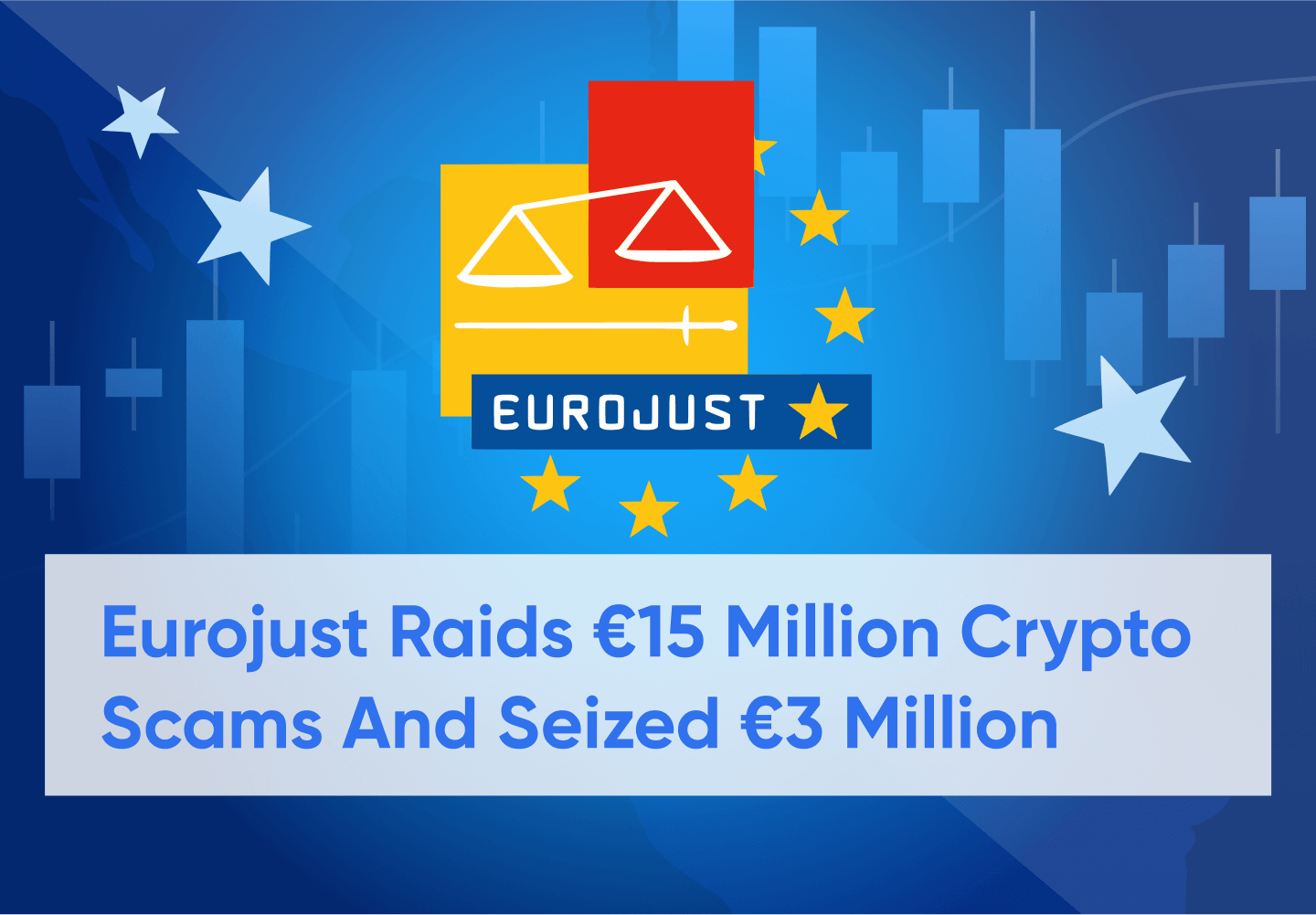The European Union Agency for Criminal Justice Cooperation, Eurojust, has started going after crypto scams across Europe. As per reports, the agency uncovered cryptocurrency scams worth €15 million during its crackdown operation.
Eurojust cooperated with Italian and Albanian authorities in their quest to tackle a notorious online crypto scam and seized €3 million worth of assets in the process. According to the watchdog, an organization of crime groups in Italy and Albania was responsible for the online investment fraud
How the Scam Groups Operated
The scam groups had their base in a call center in Tirana. They contact their victims using VPNs and anonymous virtual phone numbers, asking them to create an account on a portal. When the victims register and make payment, the crime group collects the money, reset the newly registered account, and disappears. Once they complete their transactions, the account becomes untraceable.
These criminals first gain the trust of their victims by allowing them to earn instant financial returns for a small initial investment. They contact victims claiming to be brokers from a reputable online trading platform and offering them lucrative zero-risk crypto investments. Once the victims successfully complete the first transaction and earn returns, they are tempted to invest more money. This time around, the scammers will disappear.
The crime group also access the victim's bank savings account, asking them to invest their saving into the crypto scam. Victims who lost their money were contacted by other gang members, persuading them to invest more to recover their funds.
Eurojust estimated the total loss from the scam to be about €15 million. The agency raided 13 locations in Albania, seizing 160 electronic devices and 11 assets.
2022 Have Seen an Increase In Crypto Scam Operations
As per a recent report from Solidus Labs, a New York-based crypto trade surveillance firm, 2 million people have fallen victim to crypto scams since September 2022.
Solidus Labs' report also noted that five centralized exchanges (CEXs) had over $1 billion in exposure to the crypto scams. Seventeen (17) crypto exchanges had more than $100 million, while 93 had up to $1 million exposure to scams.

Source: Solidus Labs
Furthermore, the report noted that the scams impacted almost every top crypto exchange. However, crypto exchanges are supposed to prevent money laundering under some regulatory regimes in their jurisdiction. They must also meet regulatory requirements in many jurisdictions to protect investors and fight against market abuse.
Also, according to Solidus, rug pulls have gone undetected until today. Solidus data suggests that scammers have deployed over 188,000 rugs pull tokens on Ethereum, Polygon, BNB Chain, and other blockchains.
Rug pulls are tokens or crypto projects programmed to steal from retail investors. According to Solidus findings, scammers design the rug pull smart contract with hard-code exploitative rules that enable them to strip buyers of basic privileges.
In the report, Solidus claims that honeypots have become the most successful crypto scams in 2022. It cited the Squid Game scam token that rose by 45,000% within a few days. The scam project ended with the anonymous founders of the token disappearing with investor funds worth thousands of dollars.
According to CoinMarketCap, the community now runs the Squid Game token project after the rugging allegations.
Binance Chief Warns Users Against Phishing Scams On Google Search Results
Crypto scams have become as prevalent as legit projects in the industry. Most scammers now use Google ads as a platform to promote their projects. The ads keep popping up in search results.
Binance’s CEO Changpeng Zhao (CZ) commented on the prevalence of scam sites and warned Google users to be mindful of search results that point towards scam sites. The CEO took to Twitter, sharing screenshots that showed CoinMarketCap search results. The search didn't lead to the main website but instead showed multiple results, including ones that appeared like phishing and scam sites.
In his tweet, CZ said they are trying to contact Google to address the issue of phishing sites that pop up in CoinMarketCap search results. However, he urged users to remain alert while using social channels.
According to CZ, this issue adds Smart Contract addresses to MetaMask with phishing sites, affecting the users. A September report noted that Australians lost over $242 million to these scam projects in 2022 alone. The number is even more for the entire crypto market.





